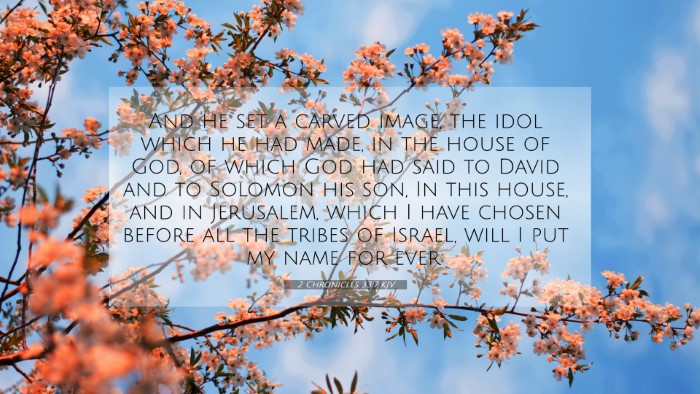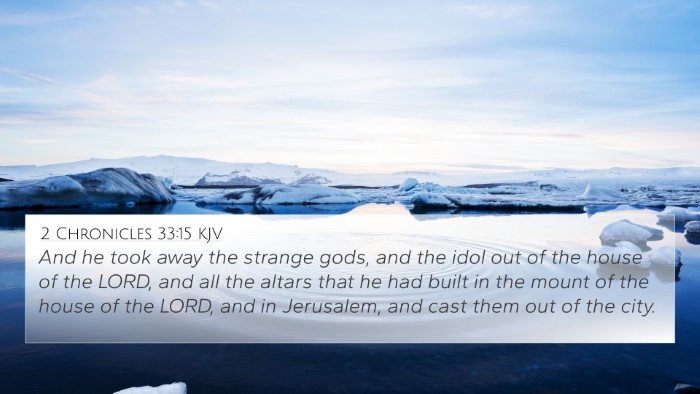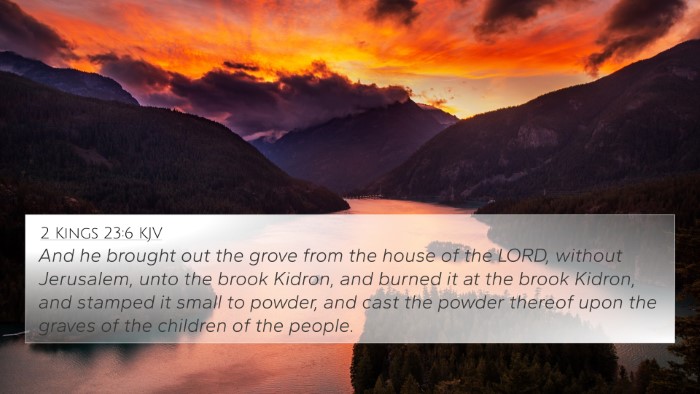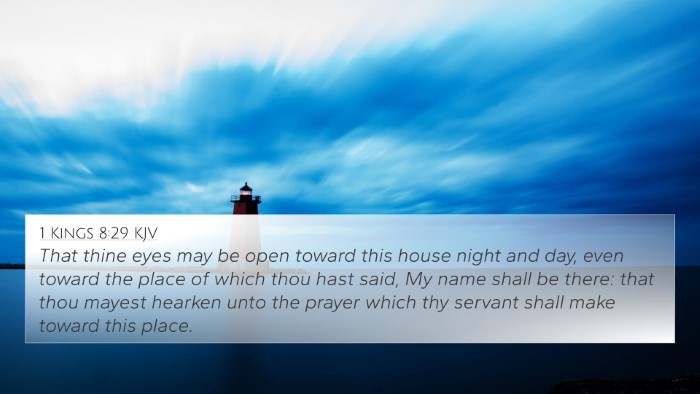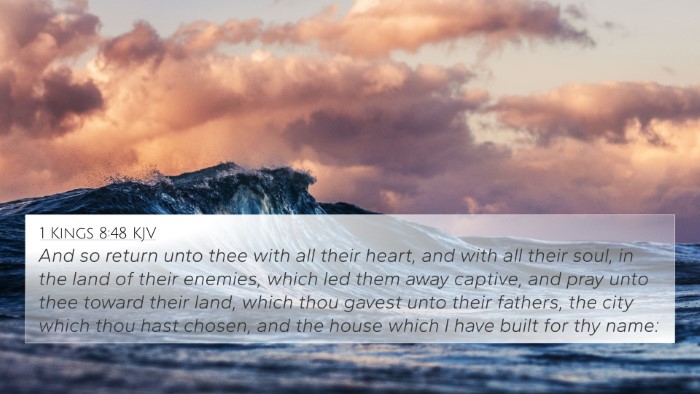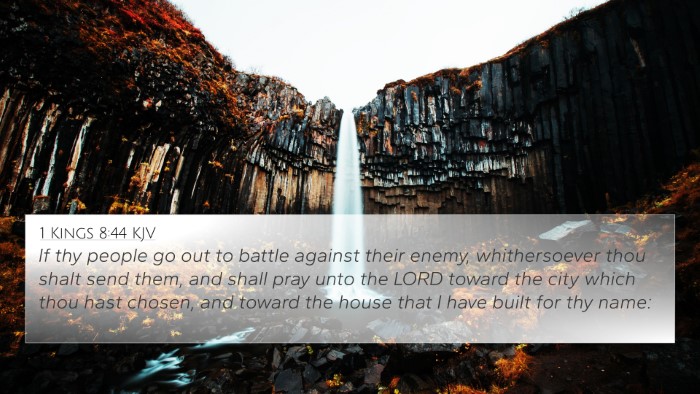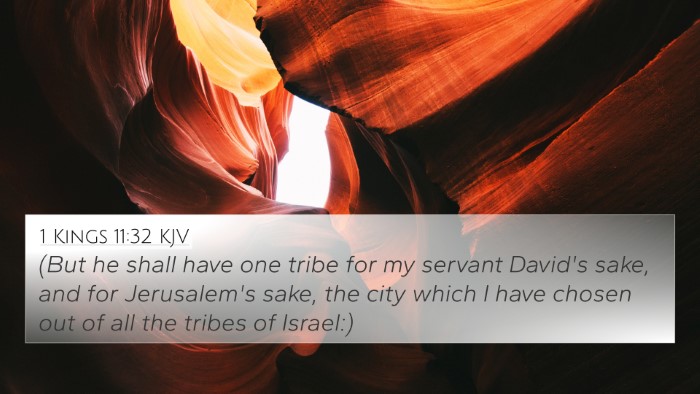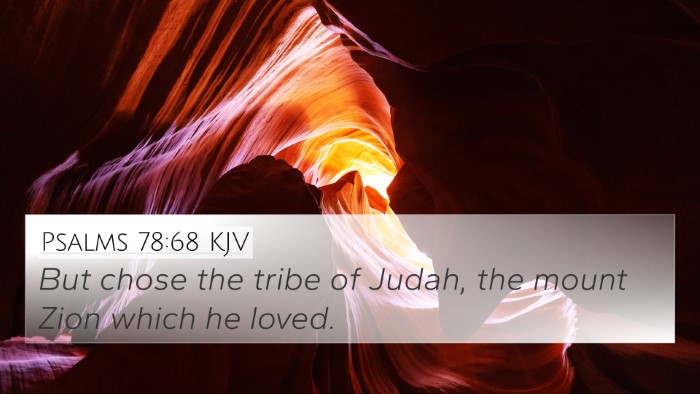Understanding 2 Chronicles 33:7
2 Chronicles 33:7 describes how King Manasseh of Judah fostered idolatry by placing a carved image in the house of God, which had been consecrated for His name. This verse highlights the severity and implications of turning away from God while encouraging readers to explore the connections between various Bible verses for deeper insights into the theme of idolatry.
Commentary Insights
-
Matthew Henry:
Henry emphasizes the gravity of Manasseh's actions, noting that his introduction of idolatrous practices into the temple was a direct affront to God’s holiness. The temple, a place set apart for divine worship, became corrupted by Manasseh's sin, demonstrating the theme of how leaders can influence the faith of a nation negatively.
-
Albert Barnes:
Barnes discusses that the carved image represented idolatry and symbolized a betrayal of Yahweh’s covenant. He suggests that Manasseh's defilement of God’s dwelling reflects the spiritual corruption that arises when leaders fail to uphold righteousness, serving as a warning for future generations.
-
Adam Clarke:
Clarke provides insight into the specifics of the image mentioned. He posits that the object may have been a representation of a pagan god or an idol worshiped by the surrounding nations. Clarke emphasizes the importance of the temple narrative and how it intersects with broader biblical themes, such as idolatry and repentance.
Bible Cross-References
- Deuteronomy 12:4 - “You must not worship the Lord your God in their way.”
- Jeremiah 7:30-31 - “The people of Judah have done evil in my eyes,” declares the Lord. “They have set up their detestable idols in the house that bears my Name and have defiled it.”
- Isaiah 44:9 - “All who make idols are nothing, and the things they treasure are worthless.”
- 2 Kings 21:7 - “He took the carved Asherah pole he had made and put it in the temple.”
- Ezekiel 8:5-6 - Insights about the abominations occurring in the temple.
- Matthew 15:8-9 - “These people honor me with their lips, but their hearts are far from me.”
- Acts 7:48 - “However, the Most High does not live in houses made by human hands.”
Thematic Connections
The verse serves as a potent reminder of the dangers of idolatry, not just in Israel’s history but also in contemporary contexts. The Scriptures often reflect the importance of worshiping God in spirit and truth, as represented in John 4:24. The thematic connections between this verse and others elucidate the ongoing dialogue throughout the Bible about fidelity to God versus the allure of false idols.
Links Between Historical and Modern Interpretations
The actions of Manasseh are echoed in both the Old and New Testaments, illustrating a continuous call against idolatry. For instance, the teachings of Jesus in the Gospels challenge the same tendencies that Manasseh exhibited, emphasizing the heart of worship over mere rituals. Understanding these connections through cross-referencing biblical texts can deepen the reader’s comprehension of God's expectations.
Conclusion
In examining 2 Chronicles 33:7 through the lens of various biblical commentaries, we gain insight into the consequences of idolatry and the significance of maintaining a pure worship practice. The dialogue between these scriptures enhances our understanding of the Bible’s overarching themes, encouraging a thorough approach to scriptural study, including the use of tools for Bible cross-referencing, to draw out the intricate web of connections that God’s Word presents.


